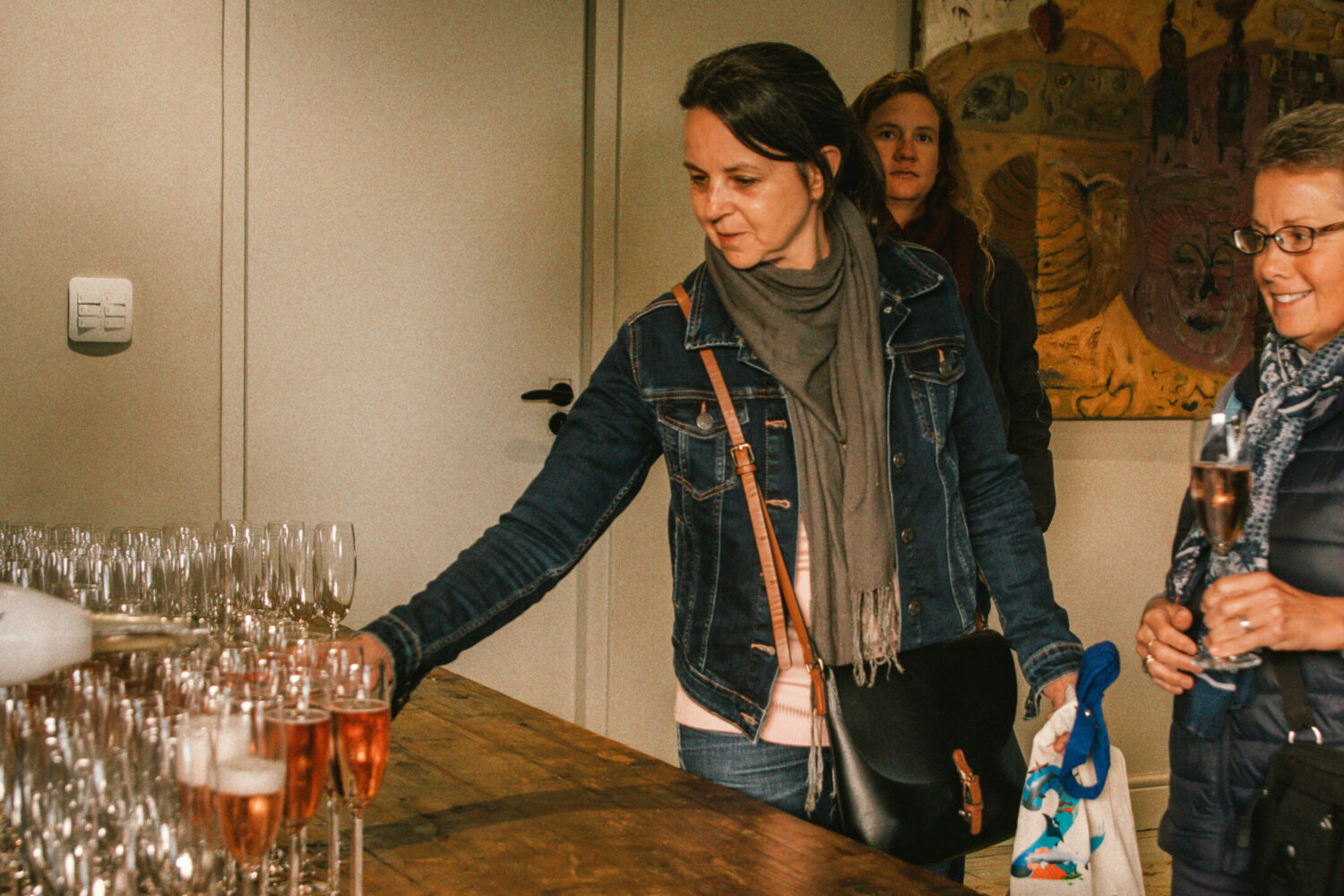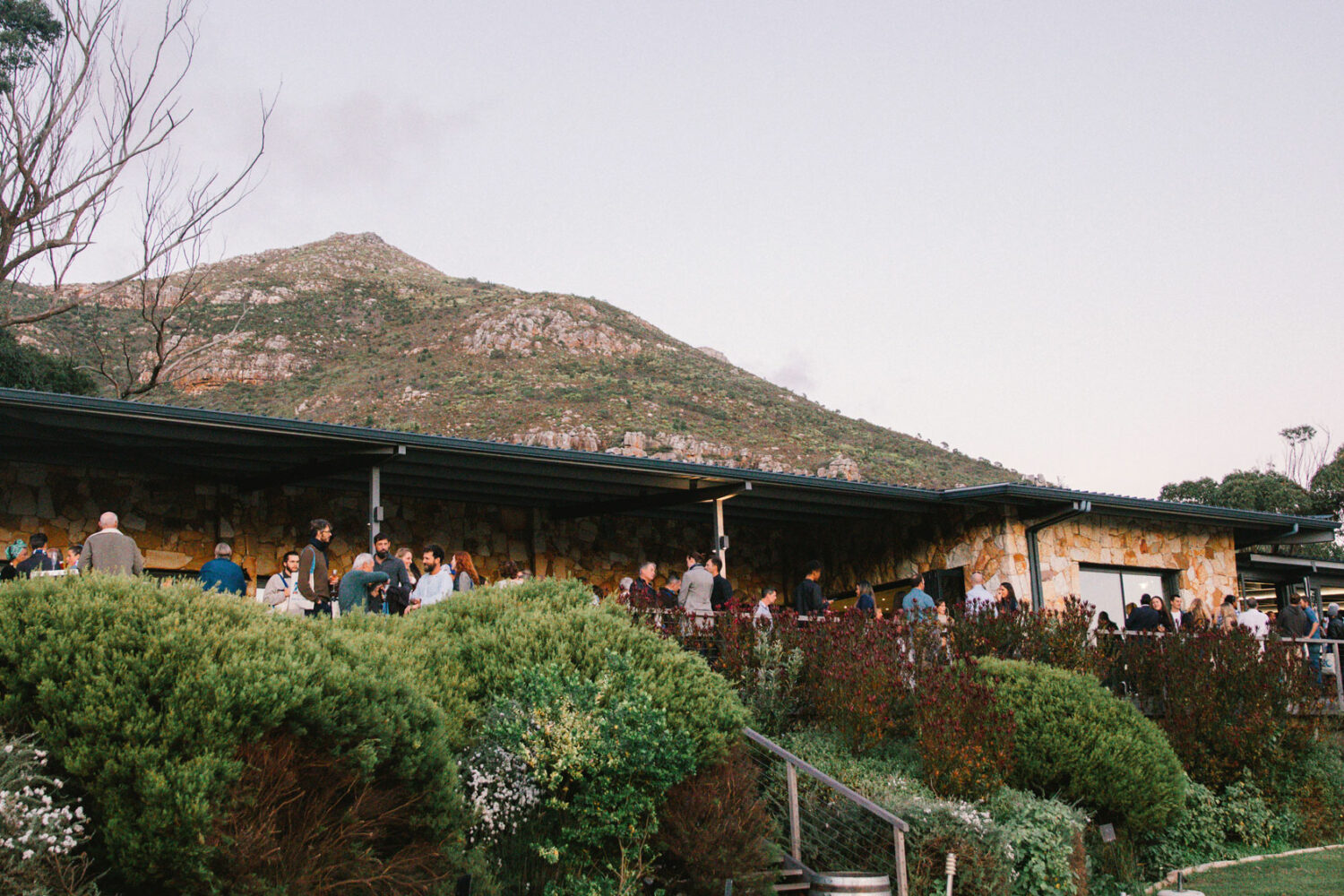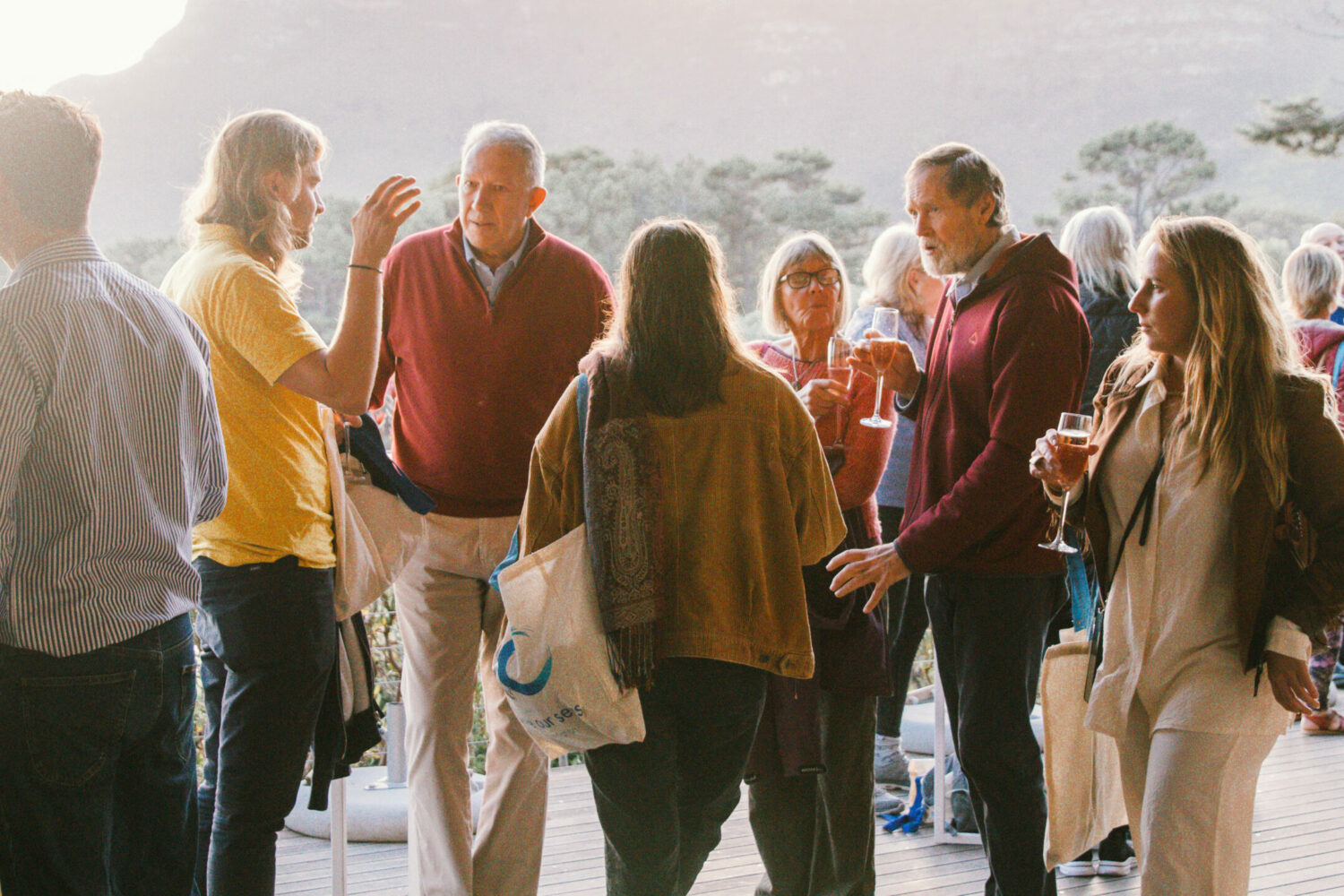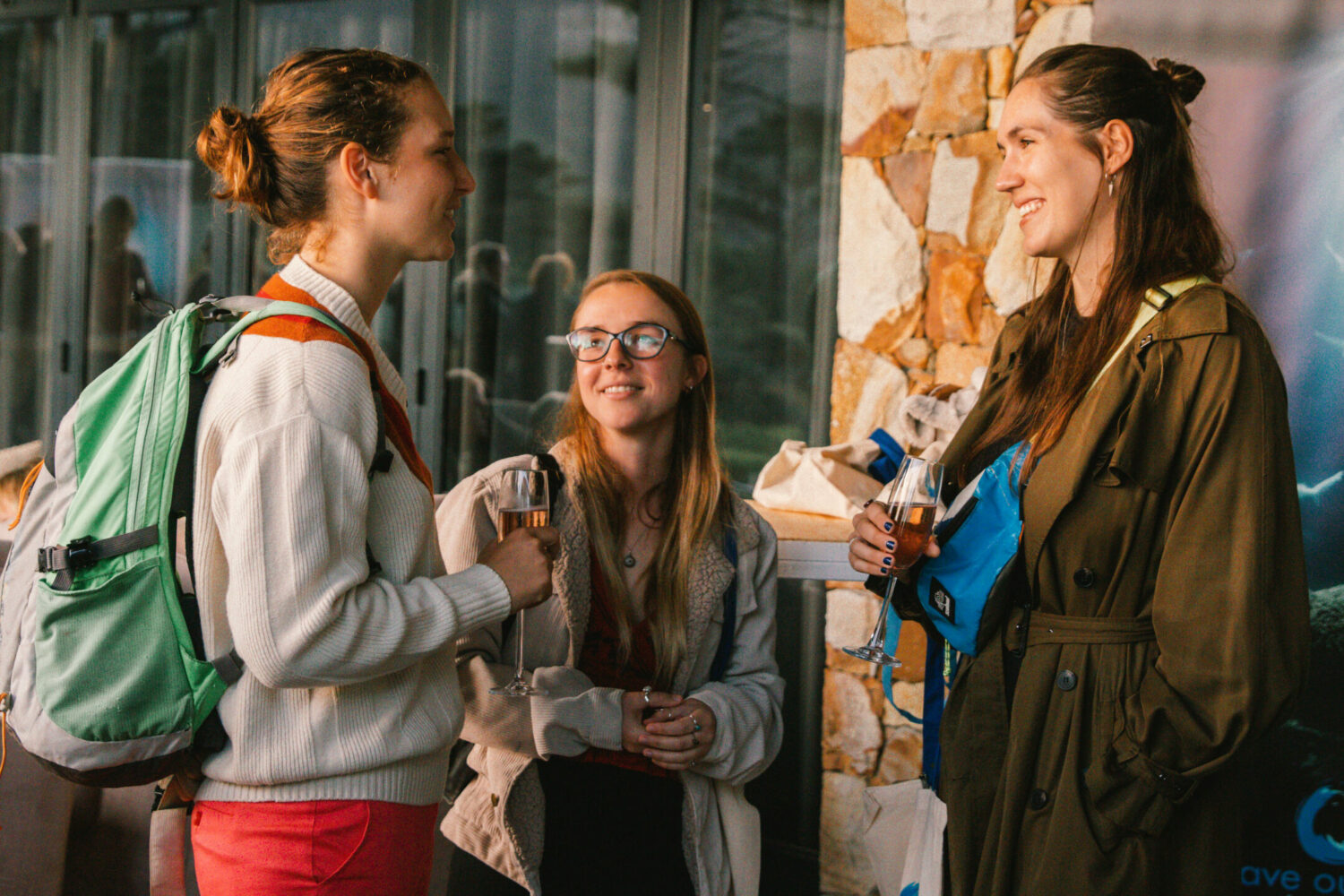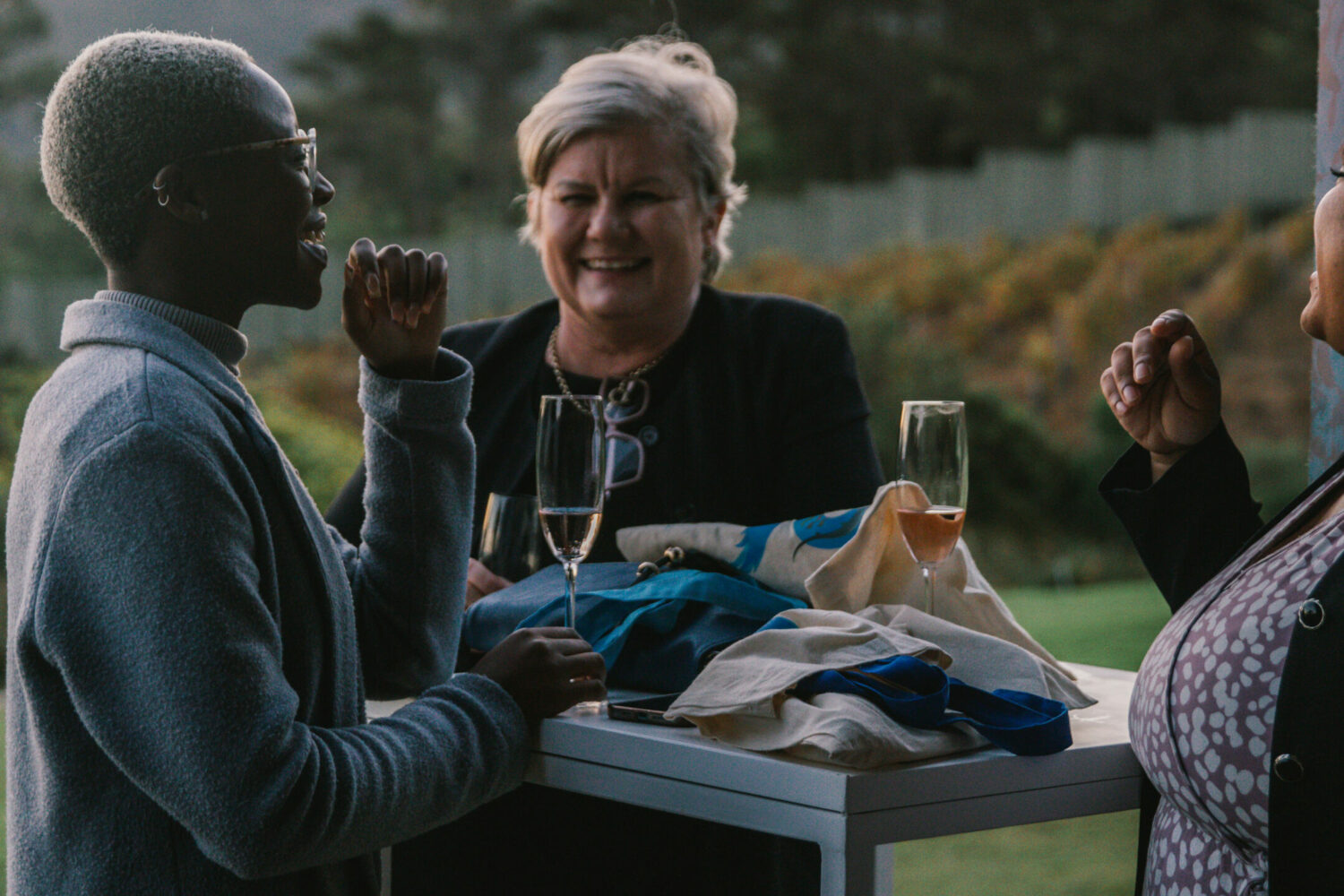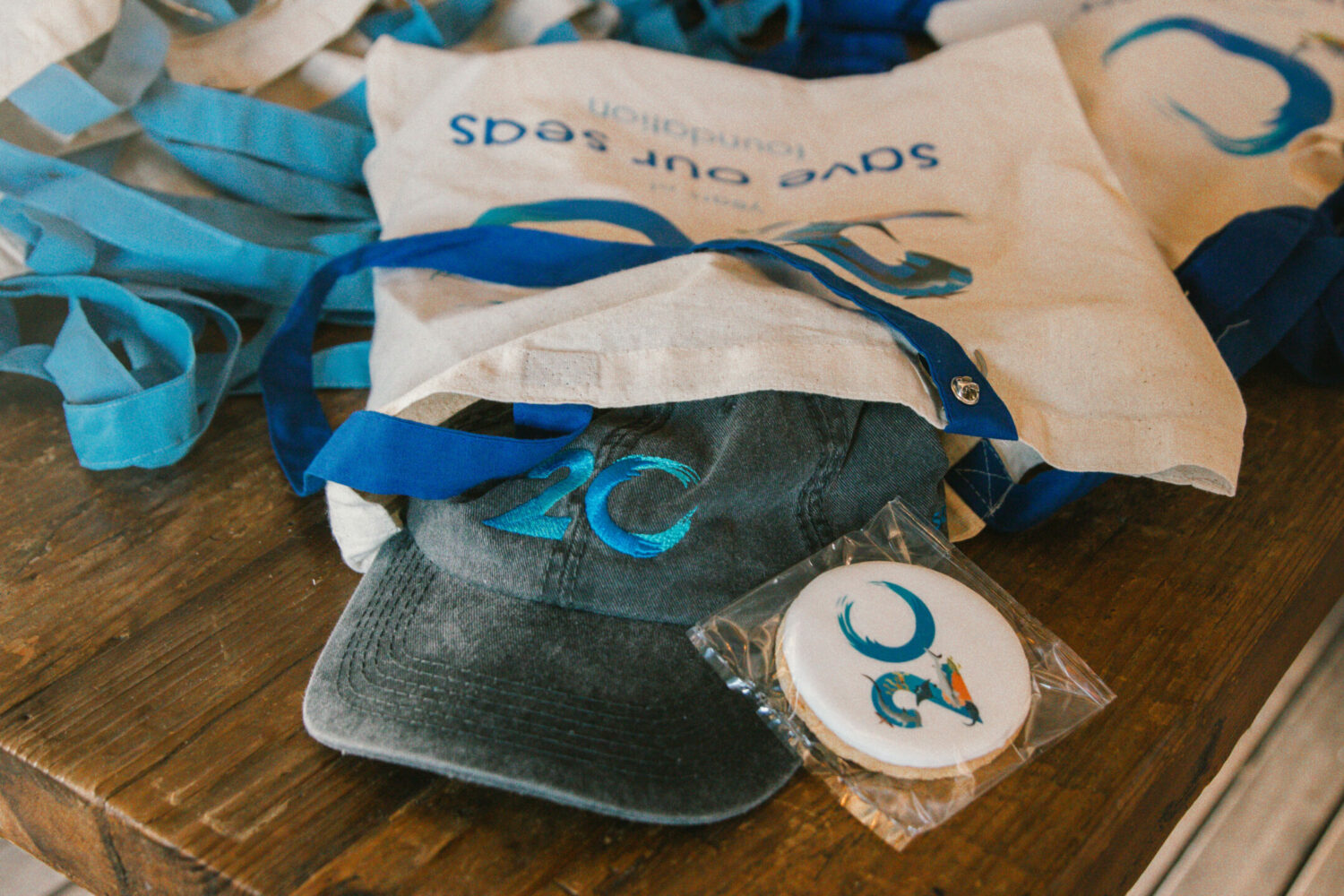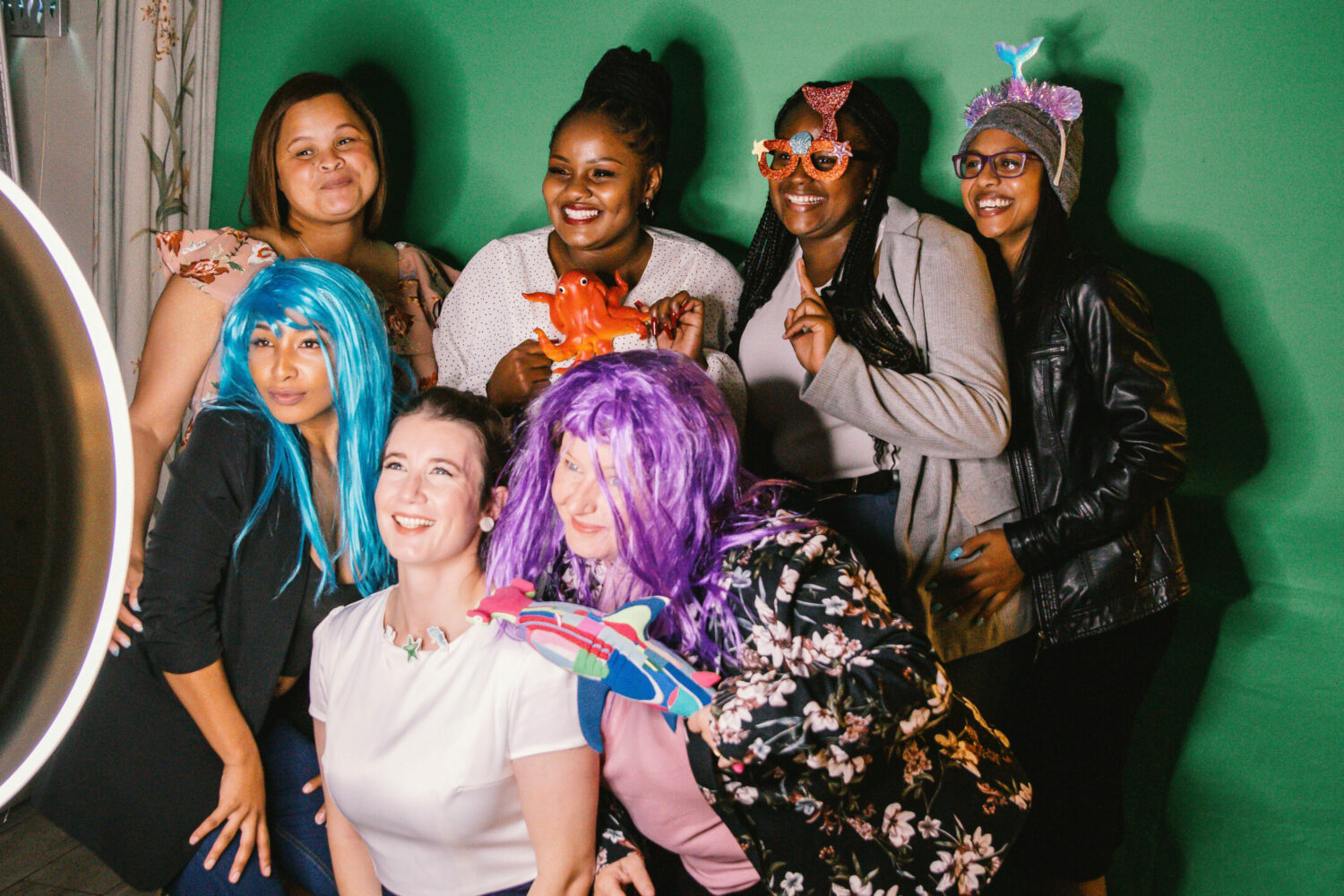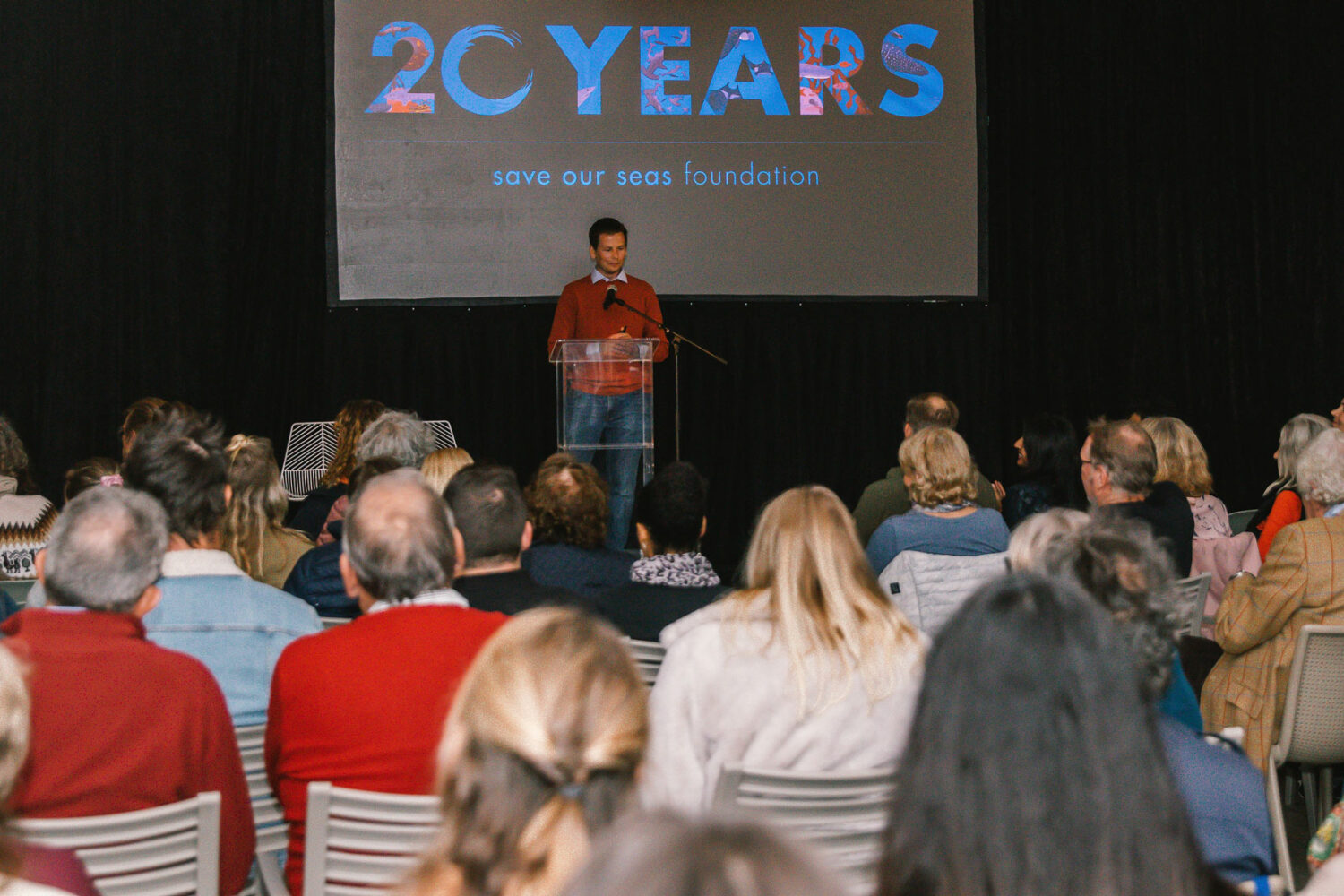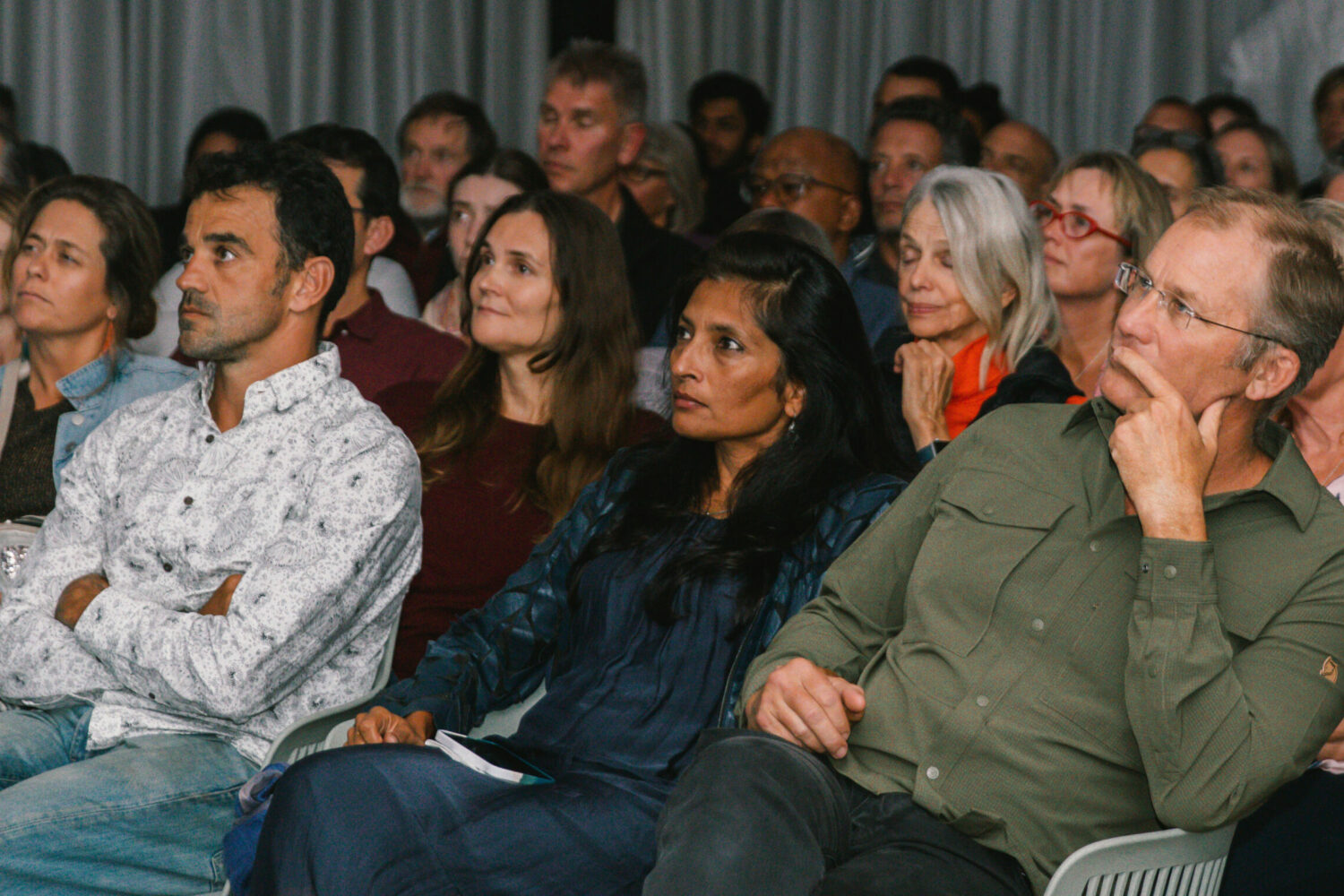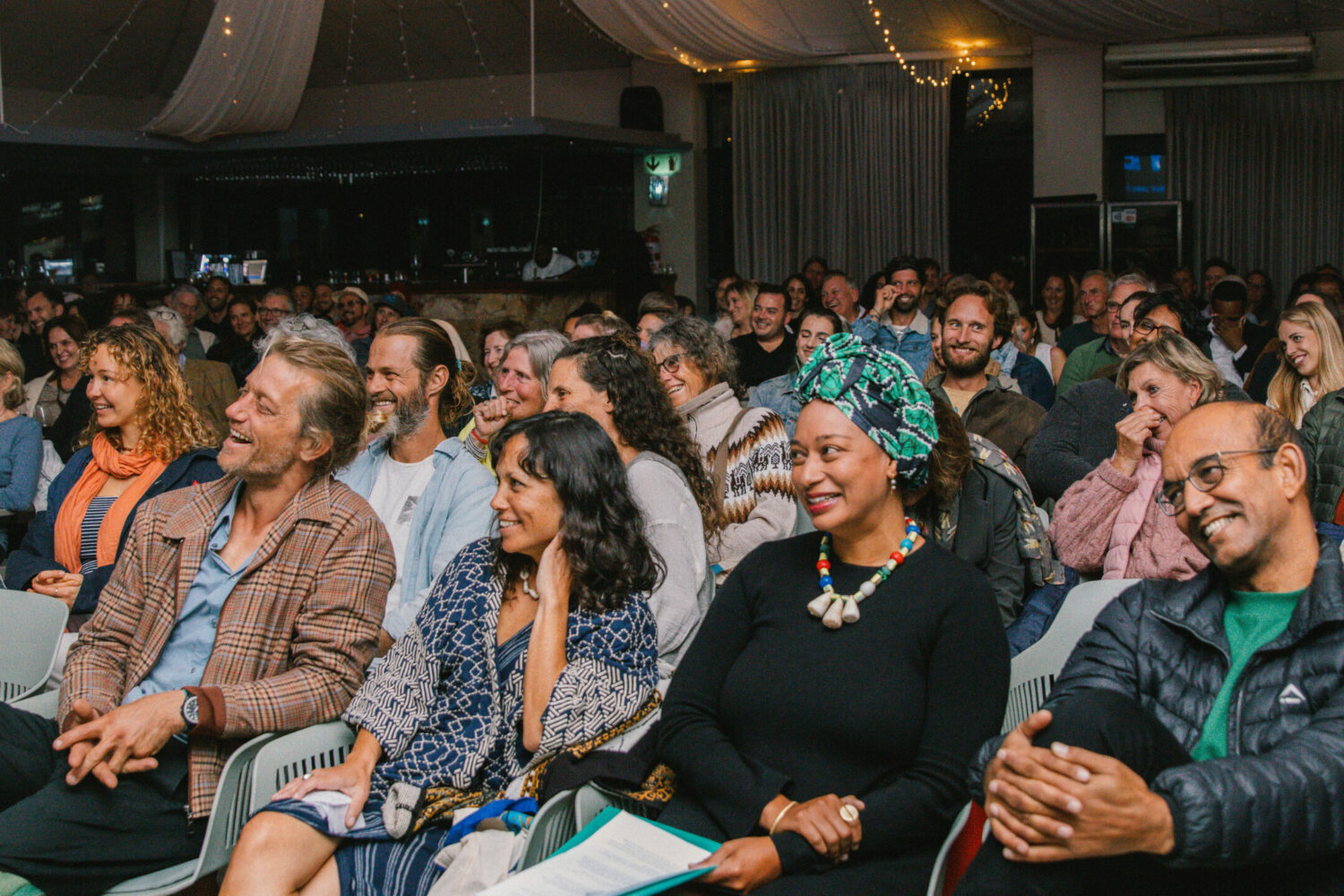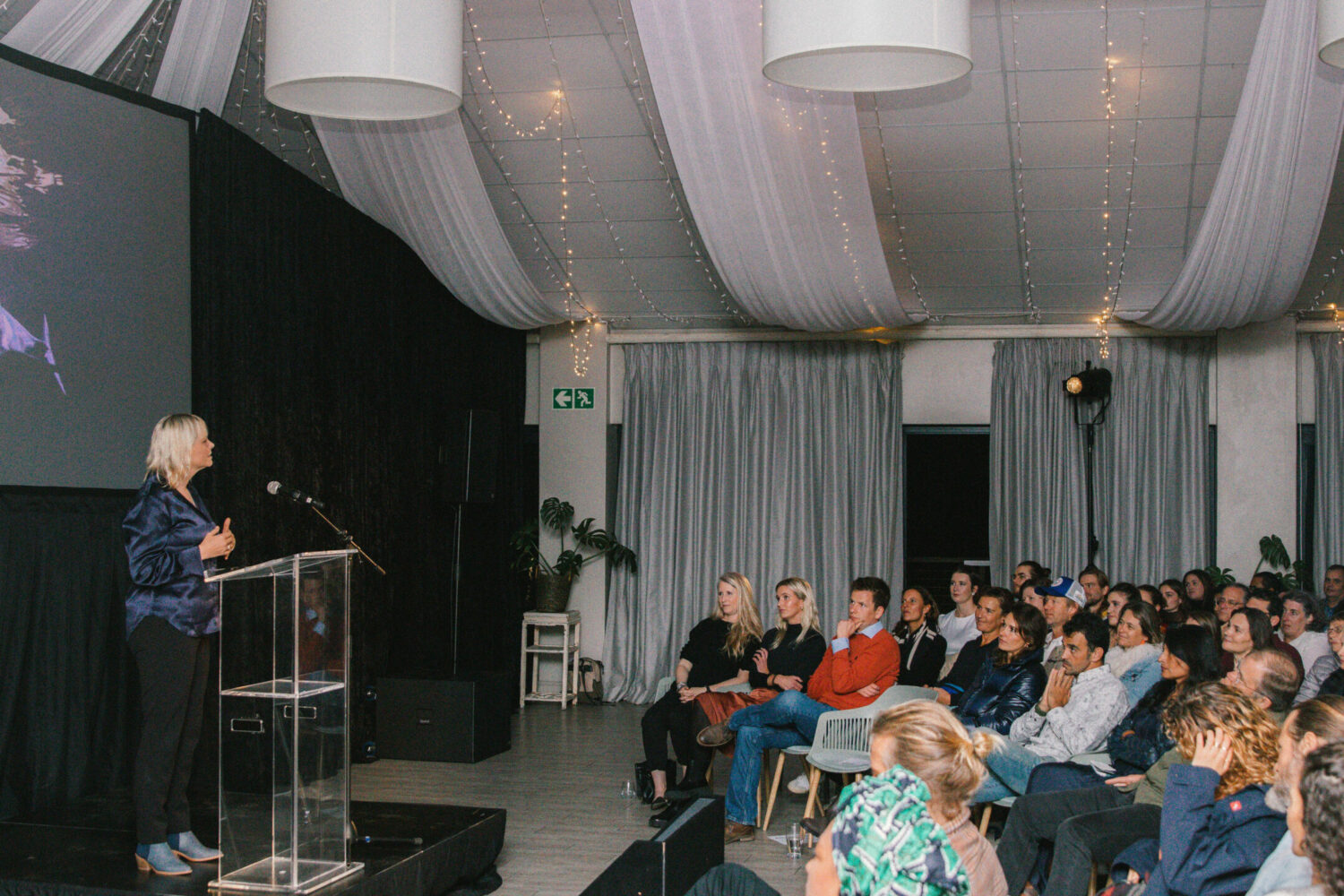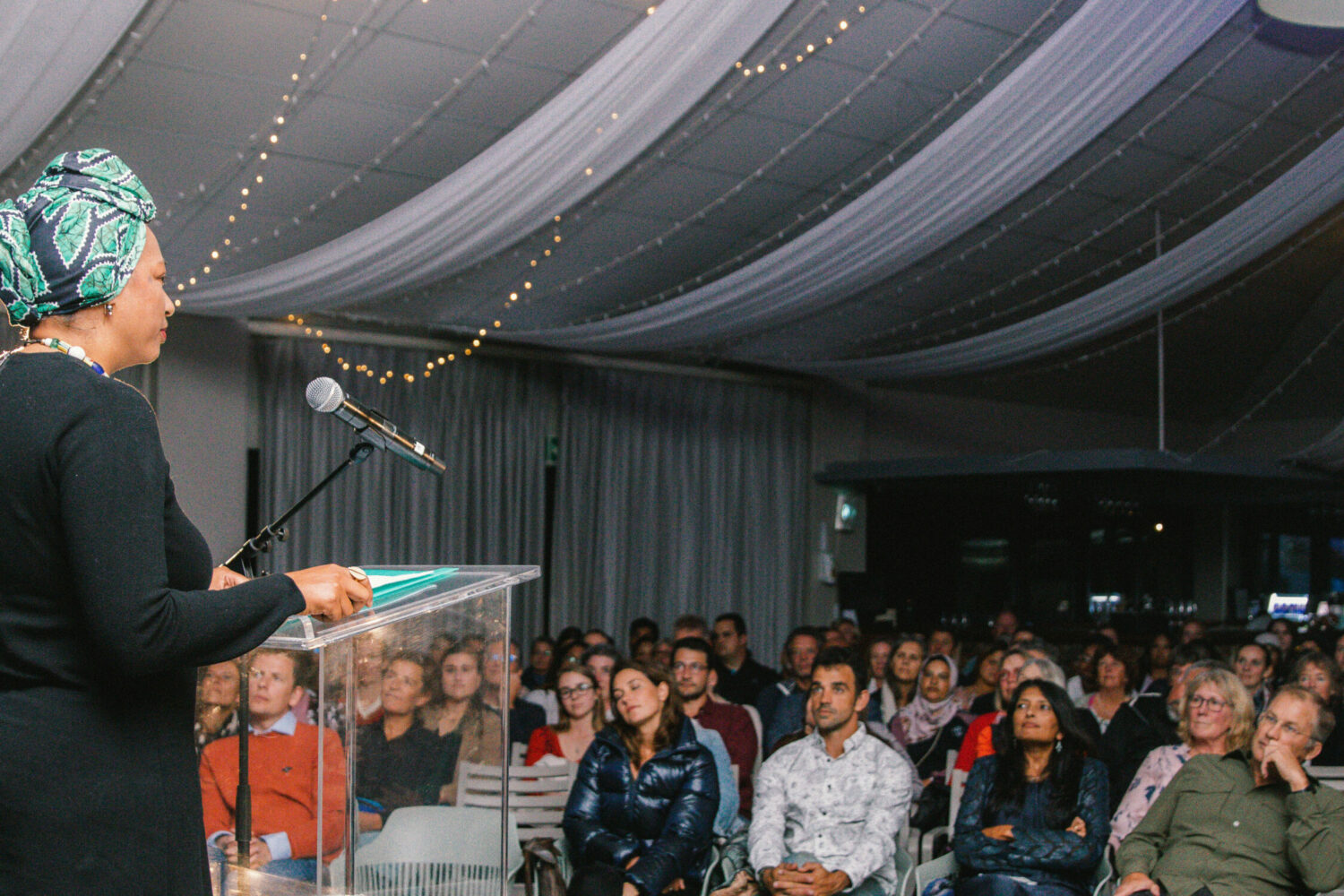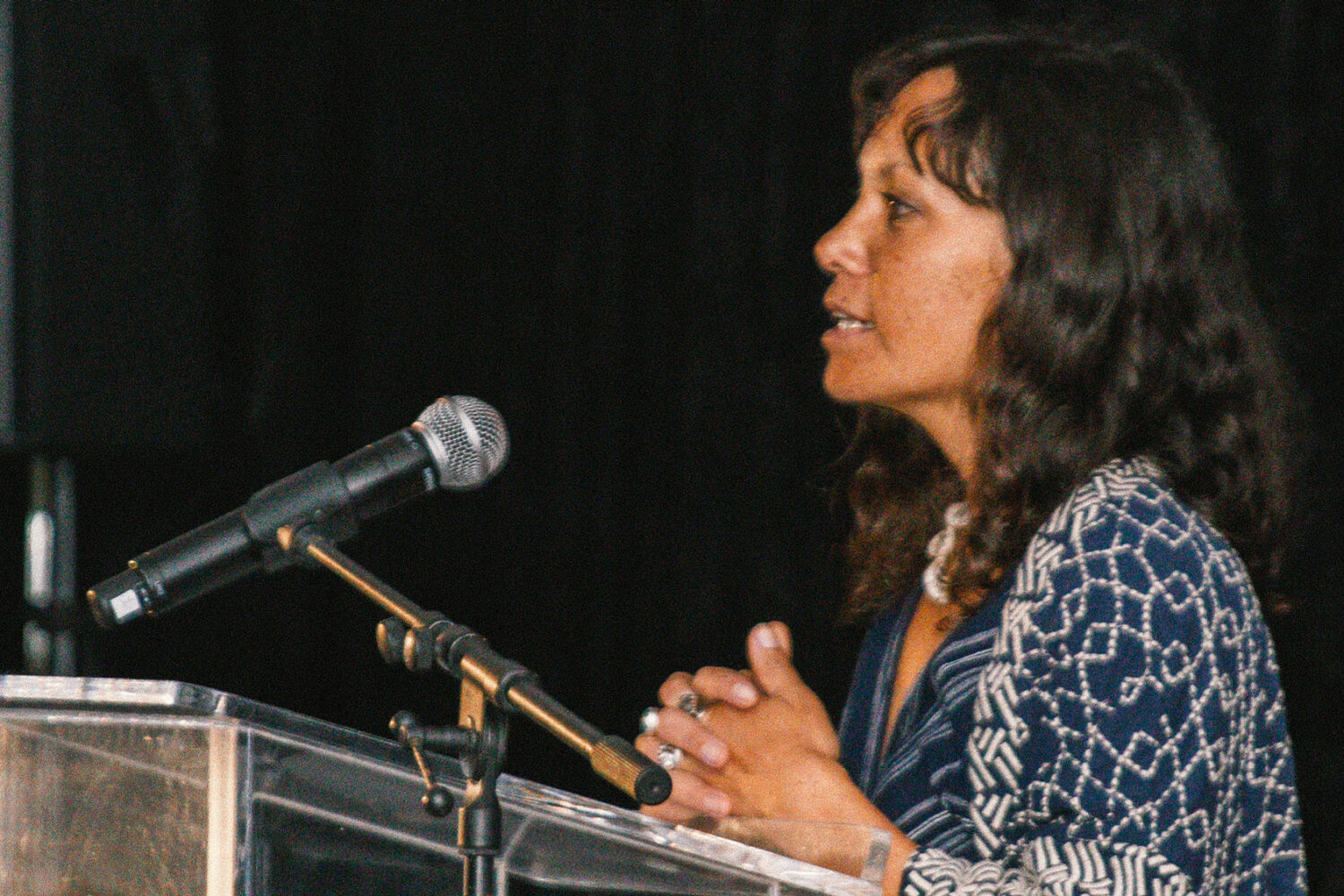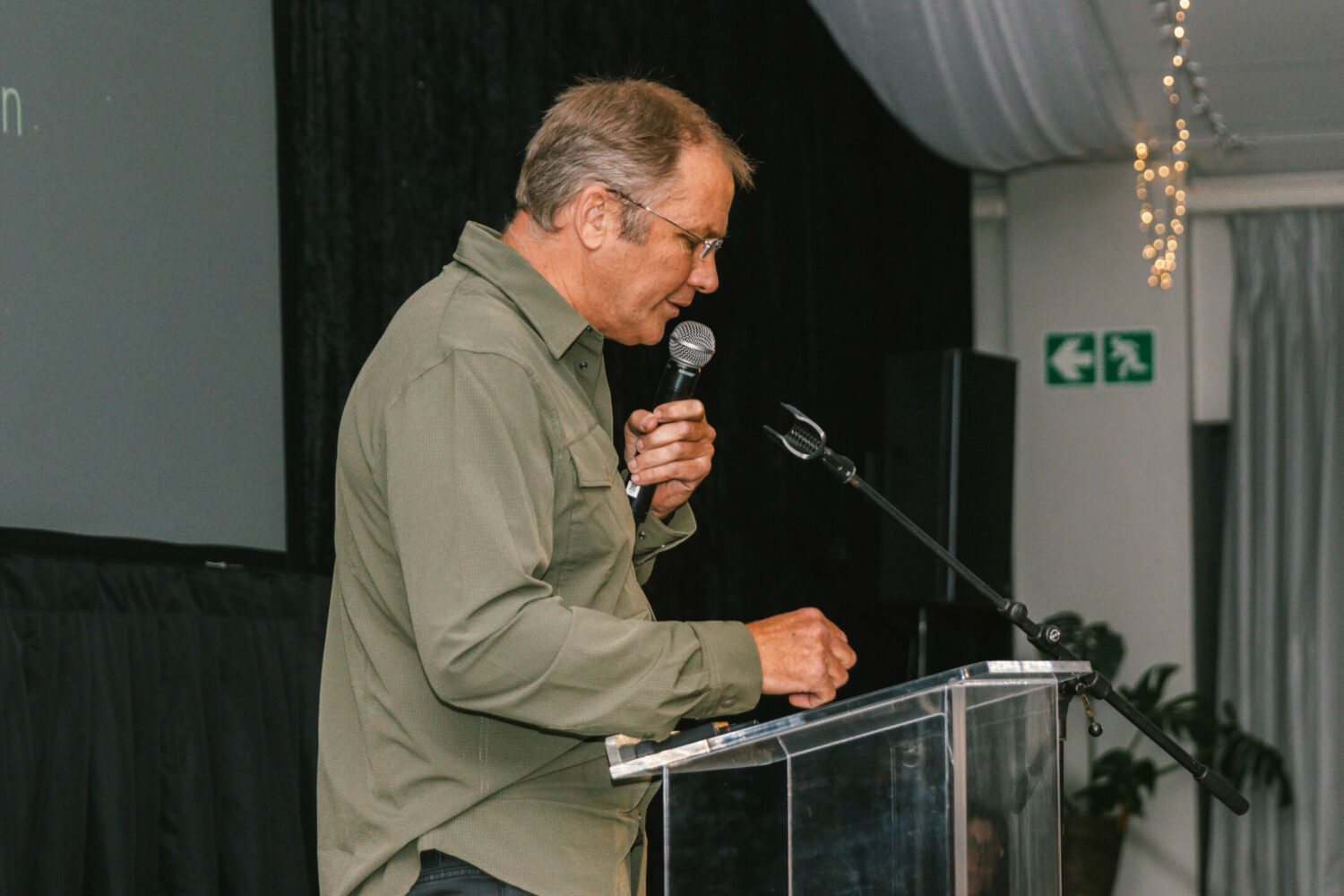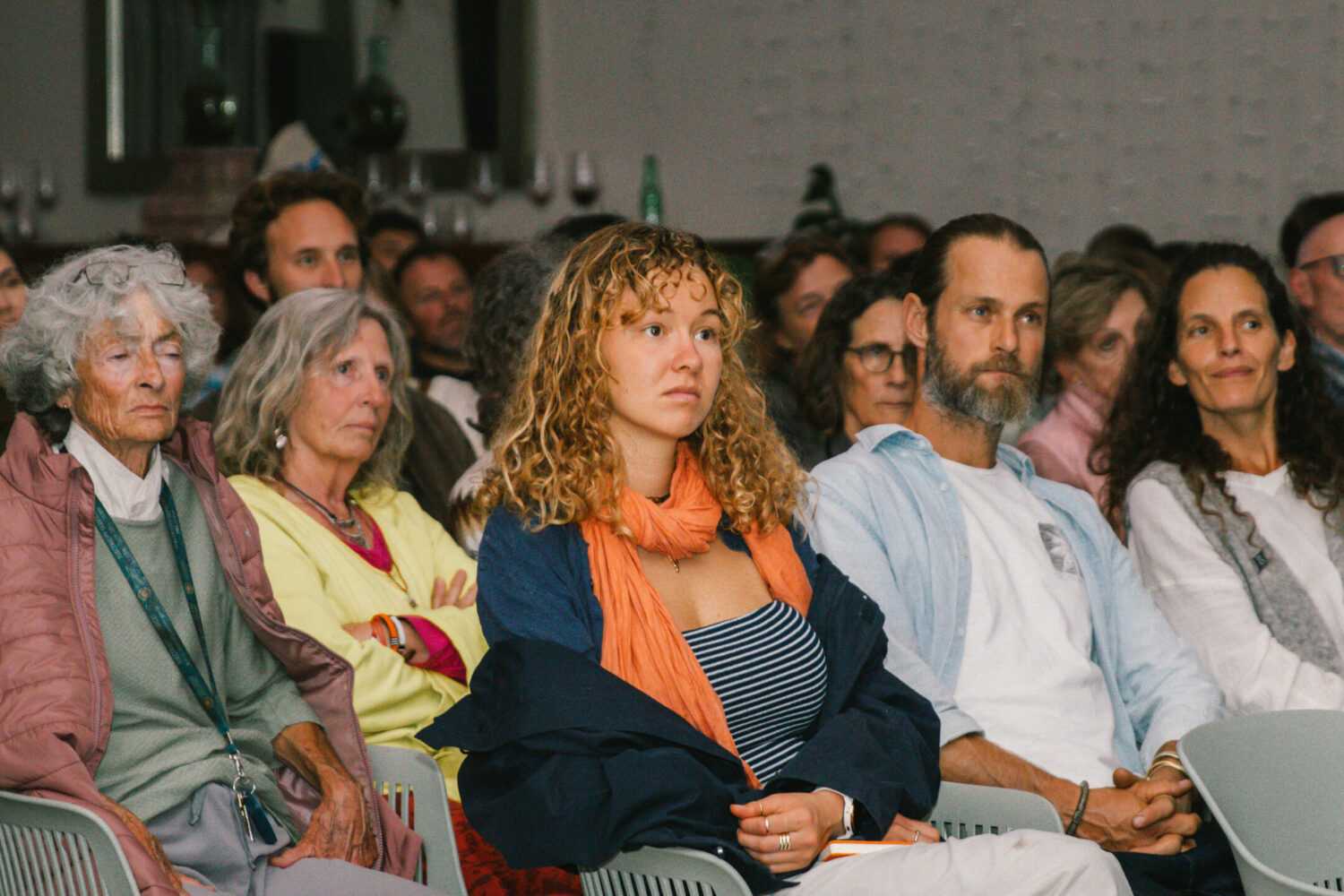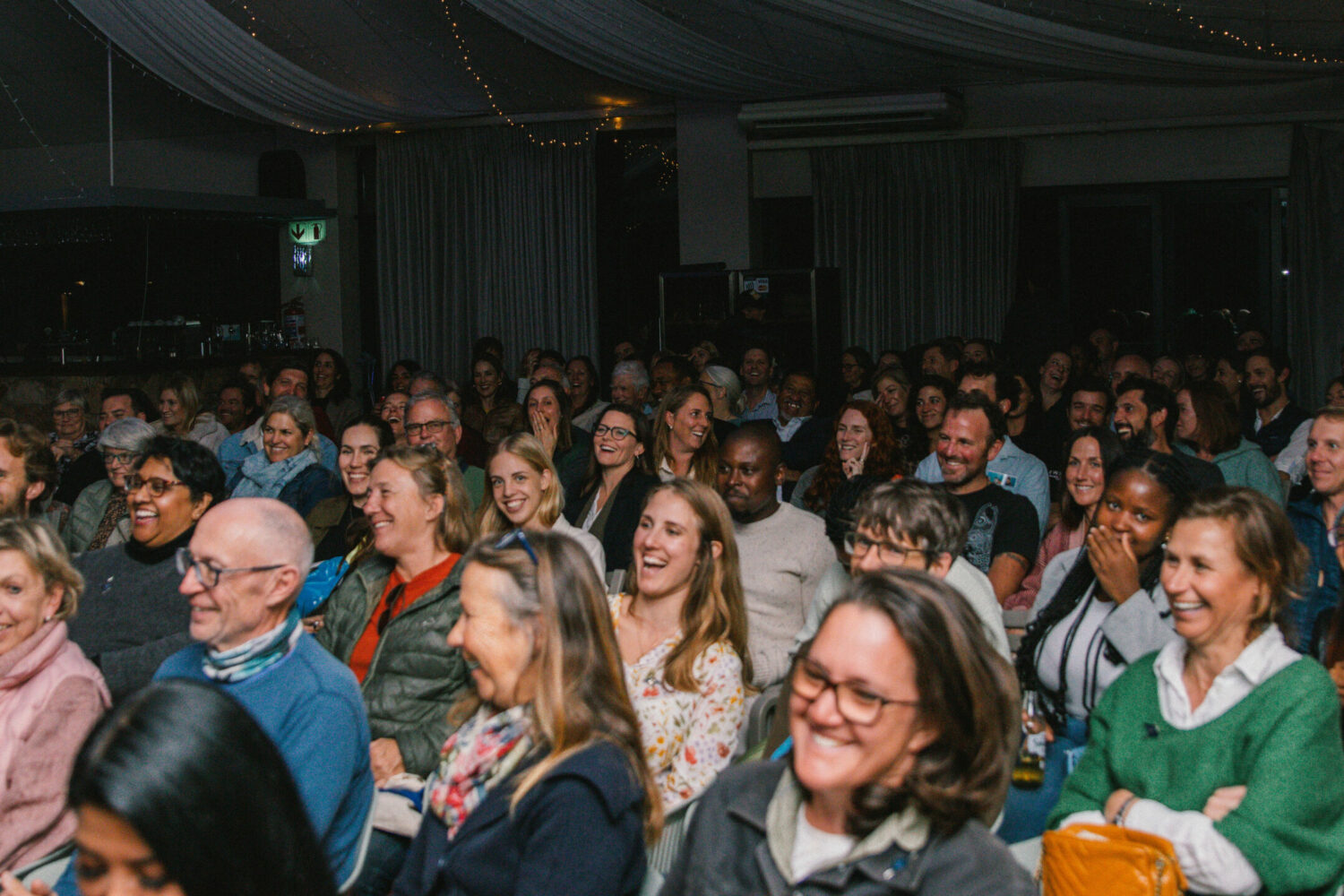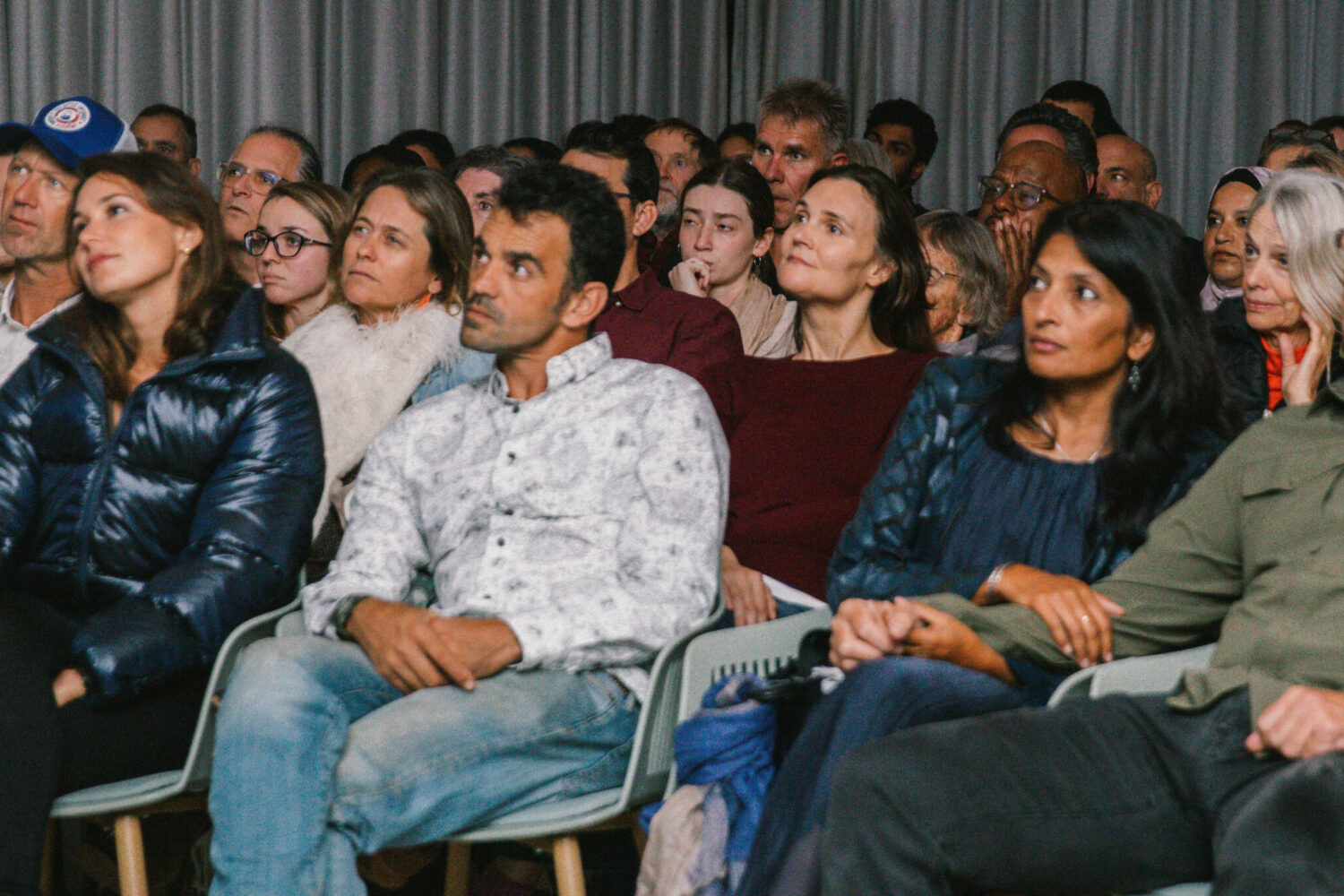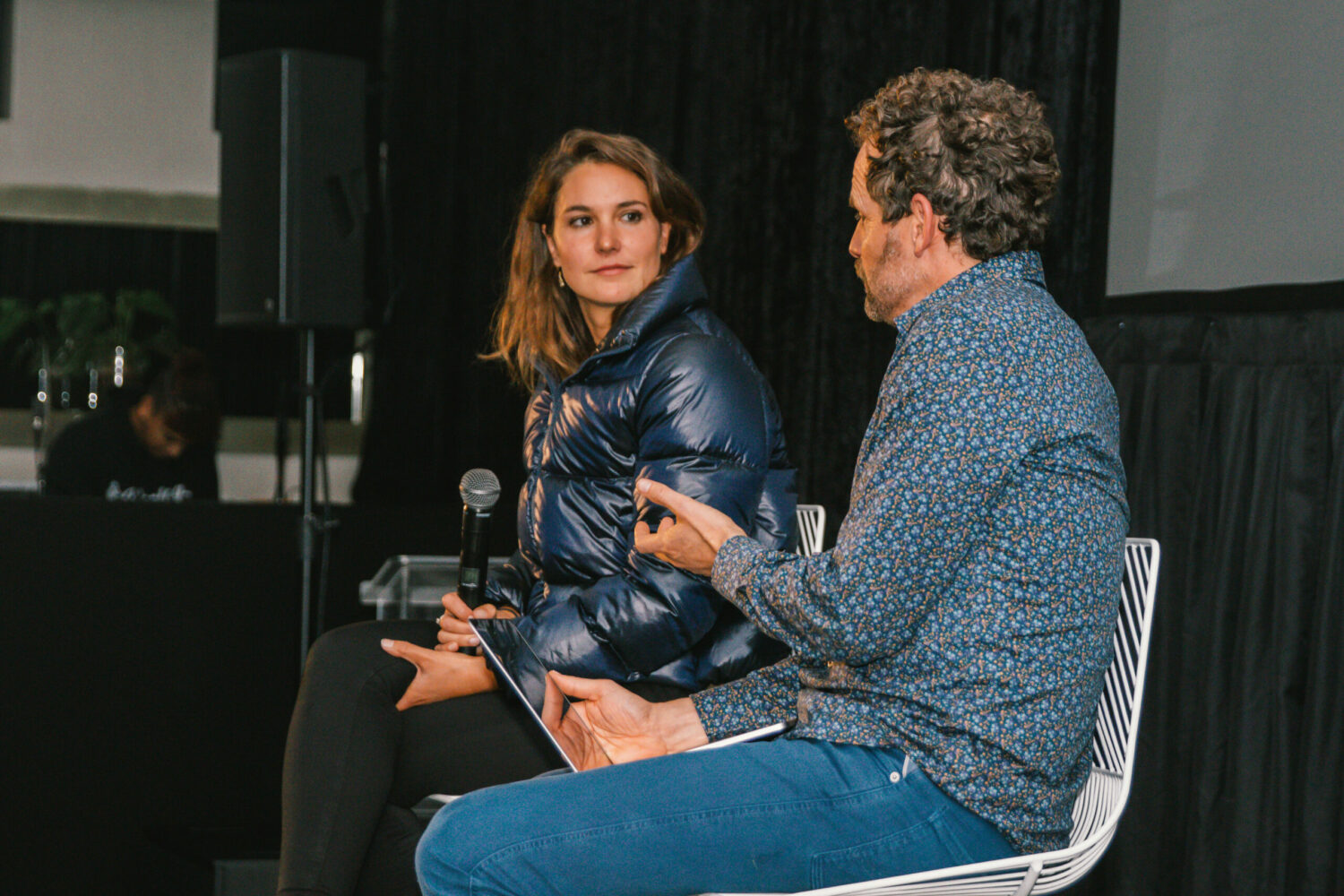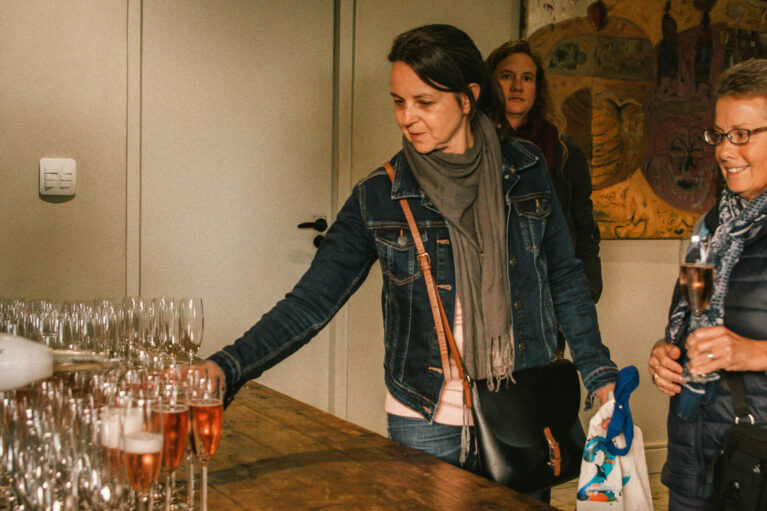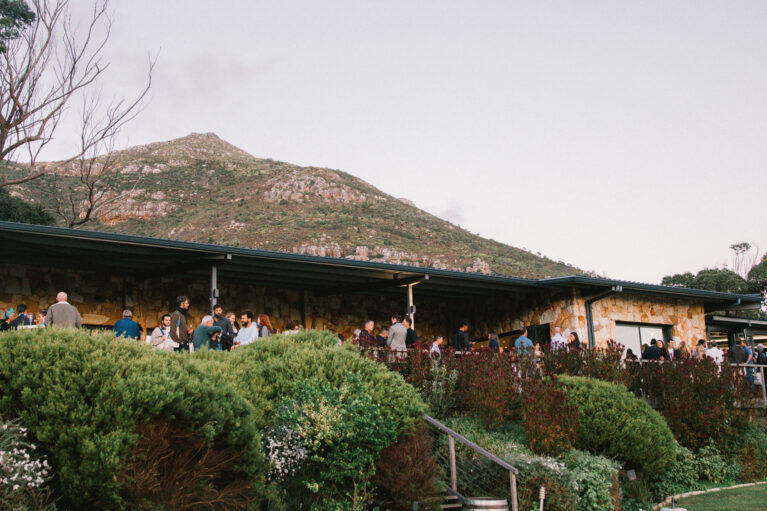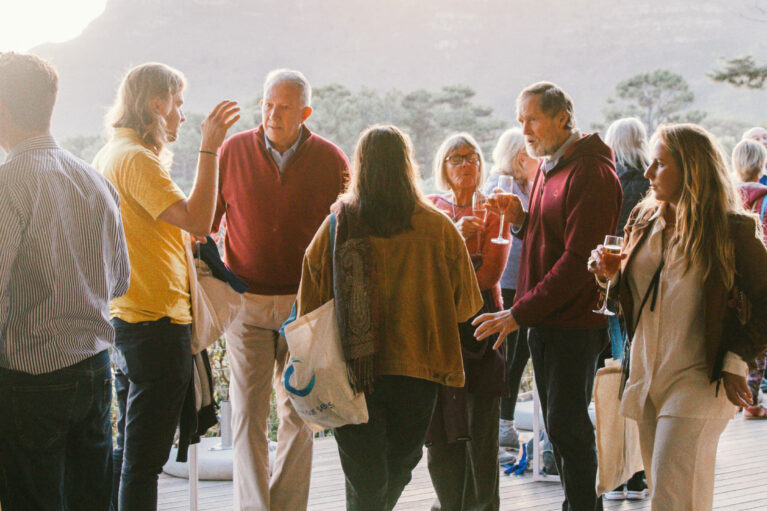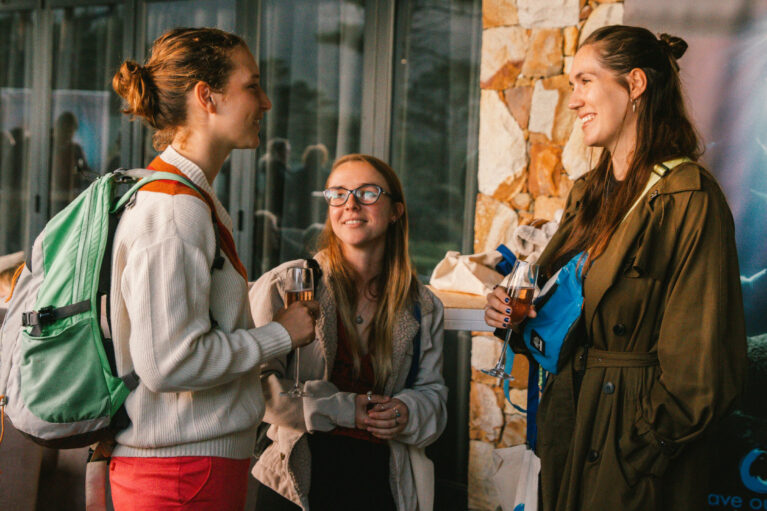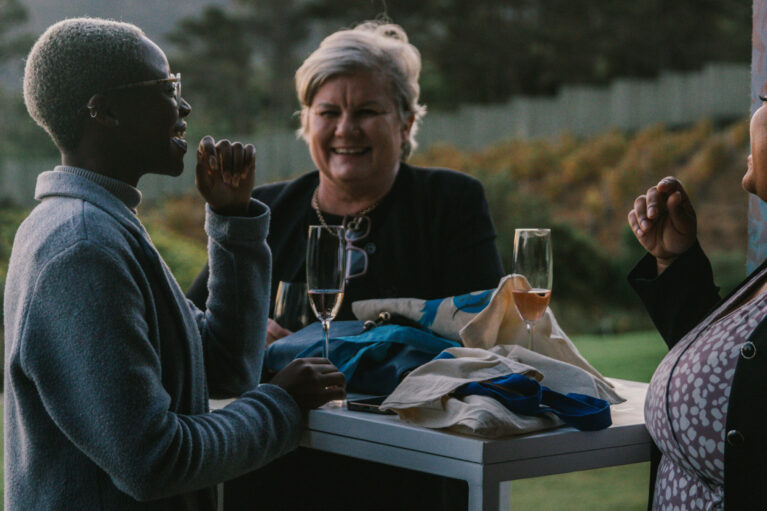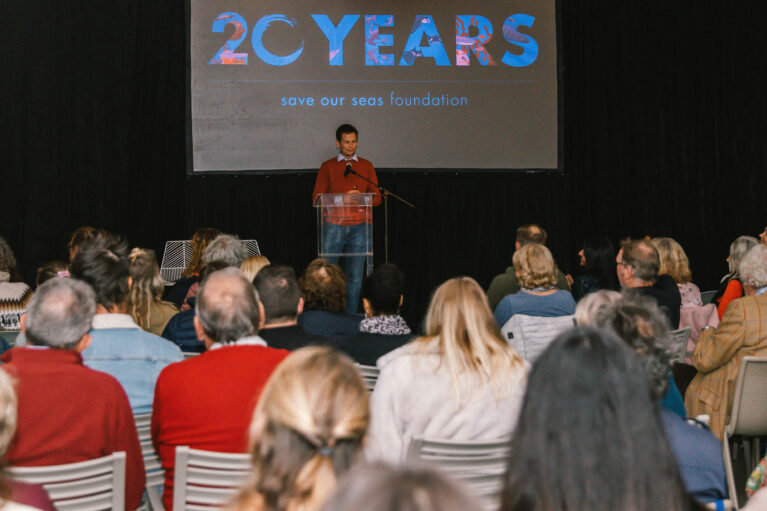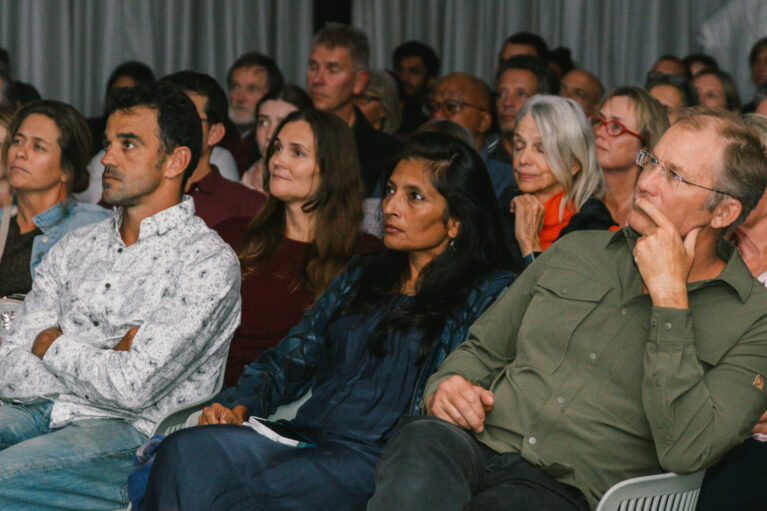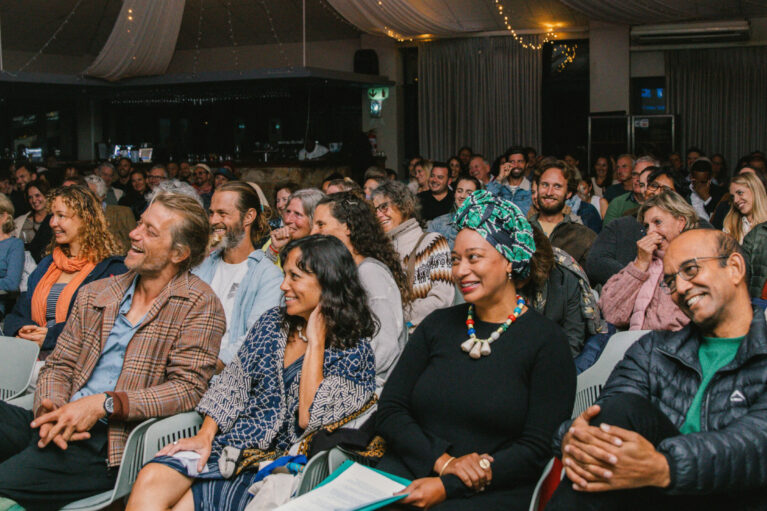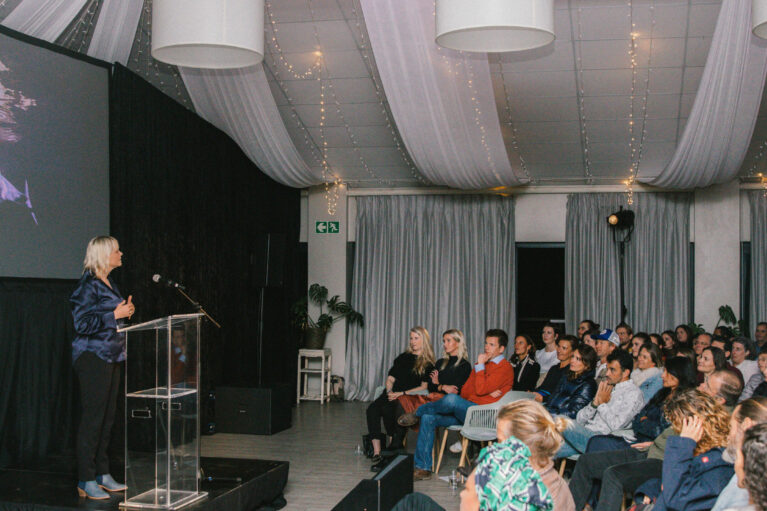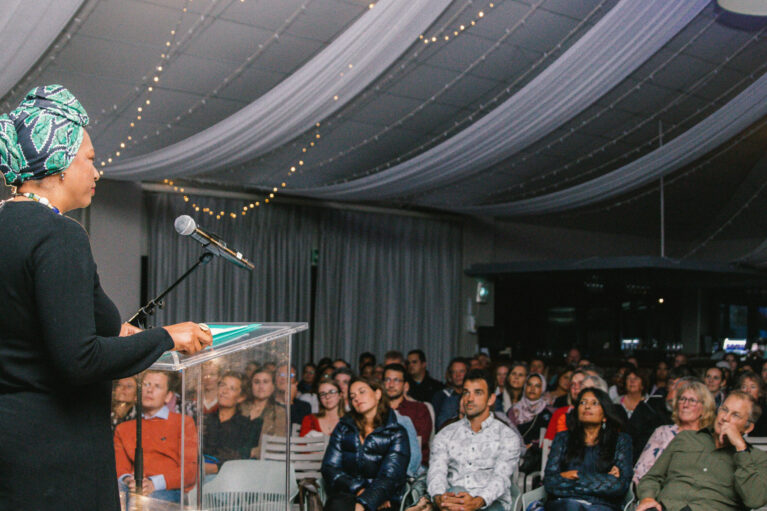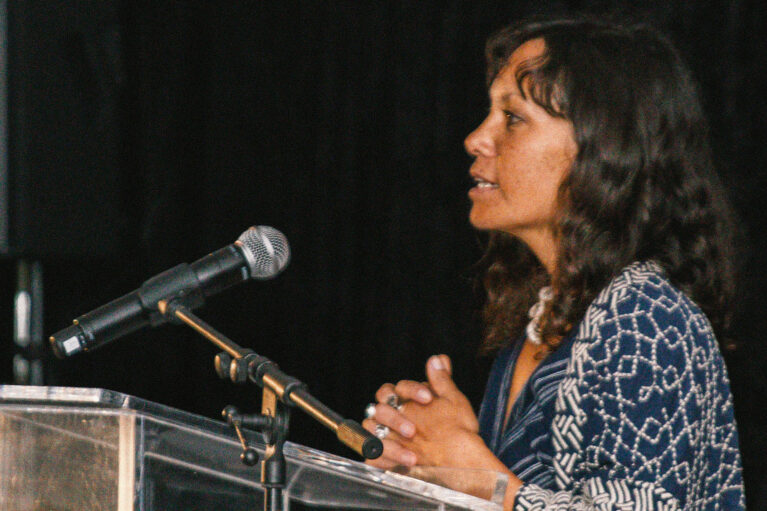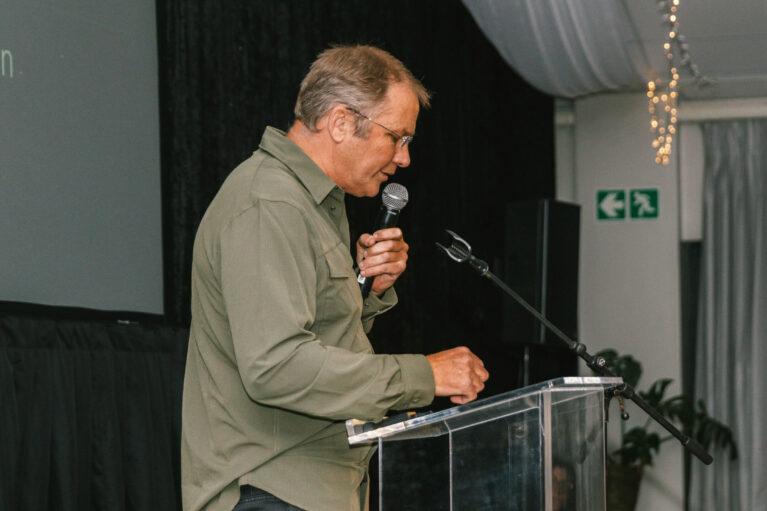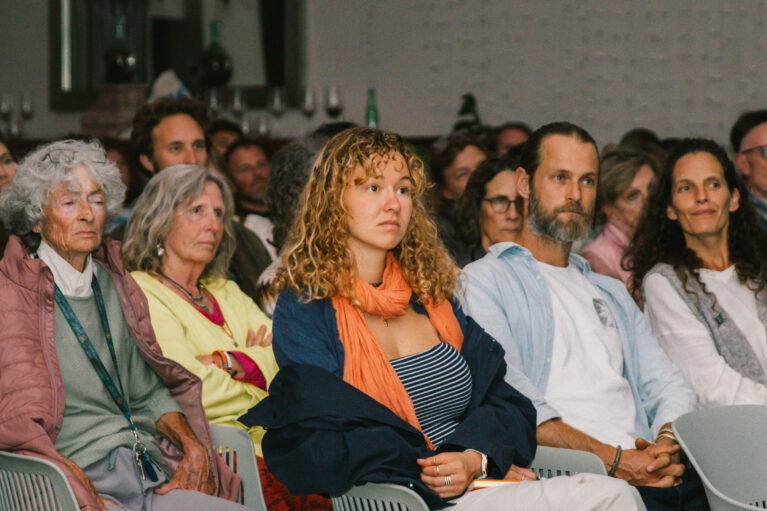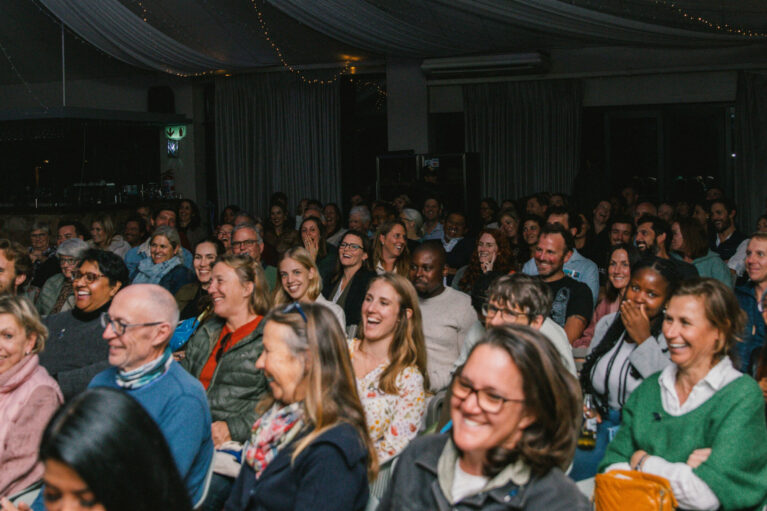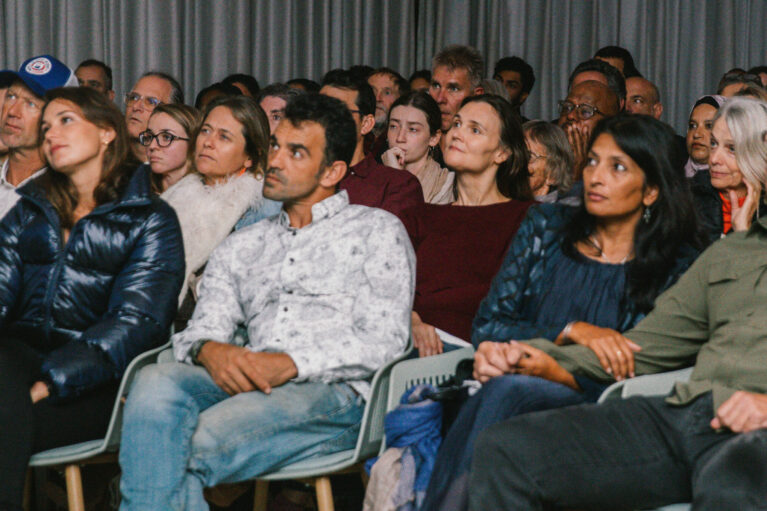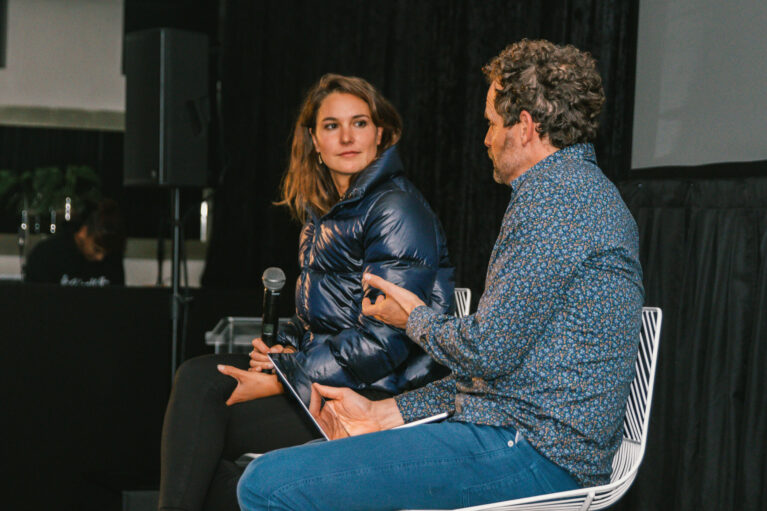Celebrating 20 years of shark science and conservation
Twenty years ago, in 2003, a fledgling organisation entered the sphere of shark and ray conservation. At that stage, the world looked quite different for this threatened group of ocean animals with possibly the worst PR in natural history. Across the planet, much of our collective public interest, research effort and funding support was concentrated on understanding the basics of their biology and ecology and homing in on a handful of charismatic species.
Since then, our scientific knowledge of how many different species there are has sky-rocketed (to 536 species of sharks, which increases the count from 440 species that were listed in the field guide Sharks of the World in 2003). And in the space of two decades, the Save Our Seas Foundation (SOSF) has grown from funding a single patrol vessel for park rangers desperate to protect a marine reserve around Cocos Island to supporting over 480 projects in more than 90 countries. Whereas for decades the focus of attention had been on a few charismatic species, the SOSF has gone on to support research on more than 220 shark species and four chimaeras (chondrichthyans, or the cartilaginous fish kin of sharks). In fact, over the past 20 years the SOSF has been able to identify and refine exactly where support for sharks and rays needs to go, and its funding priorities have become threefold: young researchers, projects in developing nations, and research on the full diversity of sharks, rays, skates and chimaeras.
The world now looks a little different for sharks and rays. The challenges, however, remain: more than one-third (37.5%) of shark and ray species are threatened with extinction, according to the International Union for the Conservation of Nature (IUCN) Red List. But there have been significantly positive strides in that time too, and these are worth celebrating.
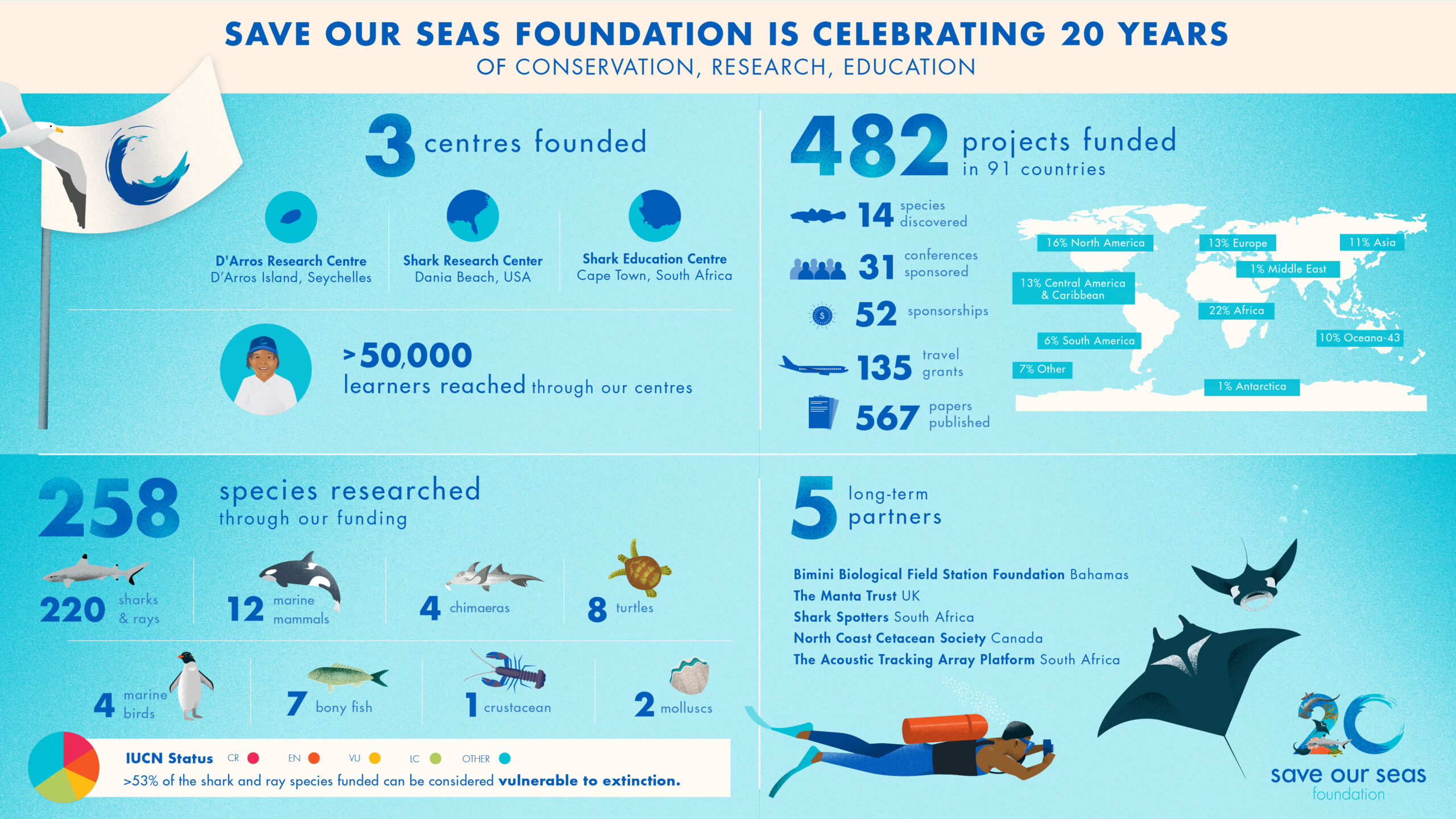
Artwork by Jamy Silver | © Save Our Seas Foundation
The SOSF D’Arros Research Centre was instrumental in providing the scientific evidence for promulgating the D’Arros Marine Protected Area. Seychelles has now achieved more than 30% protection of its territorial waters, exceeding the targets outlined by the United Nations Convention on Biological Diversity (CBD) to protect 30% of our oceans by 2030. The Manta Trust, a long-term partner of the SOSF, together with other organisations, helped to secure Indonesia’s largest sanctuary for manta rays. Whereas white sharks and basking sharks were the first shark species listed on the Convention on International Trade in Endangered Species (CITES) in 2003, 20 years later 90% of the shark fin trade has been brought under surveillance by increasing to more than 140 the species that are listed today. In 2019 Professor Mahmood Shivji of the SOSF Shark Research Center at Nova Southeastern University in Florida led a team that sequenced the first white shark genome. He and his colleagues have since sequenced genomes for great hammerhead and shortfin mako sharks, breakthroughs that show us how nuanced our conservation strategies must be to manage shark populations.
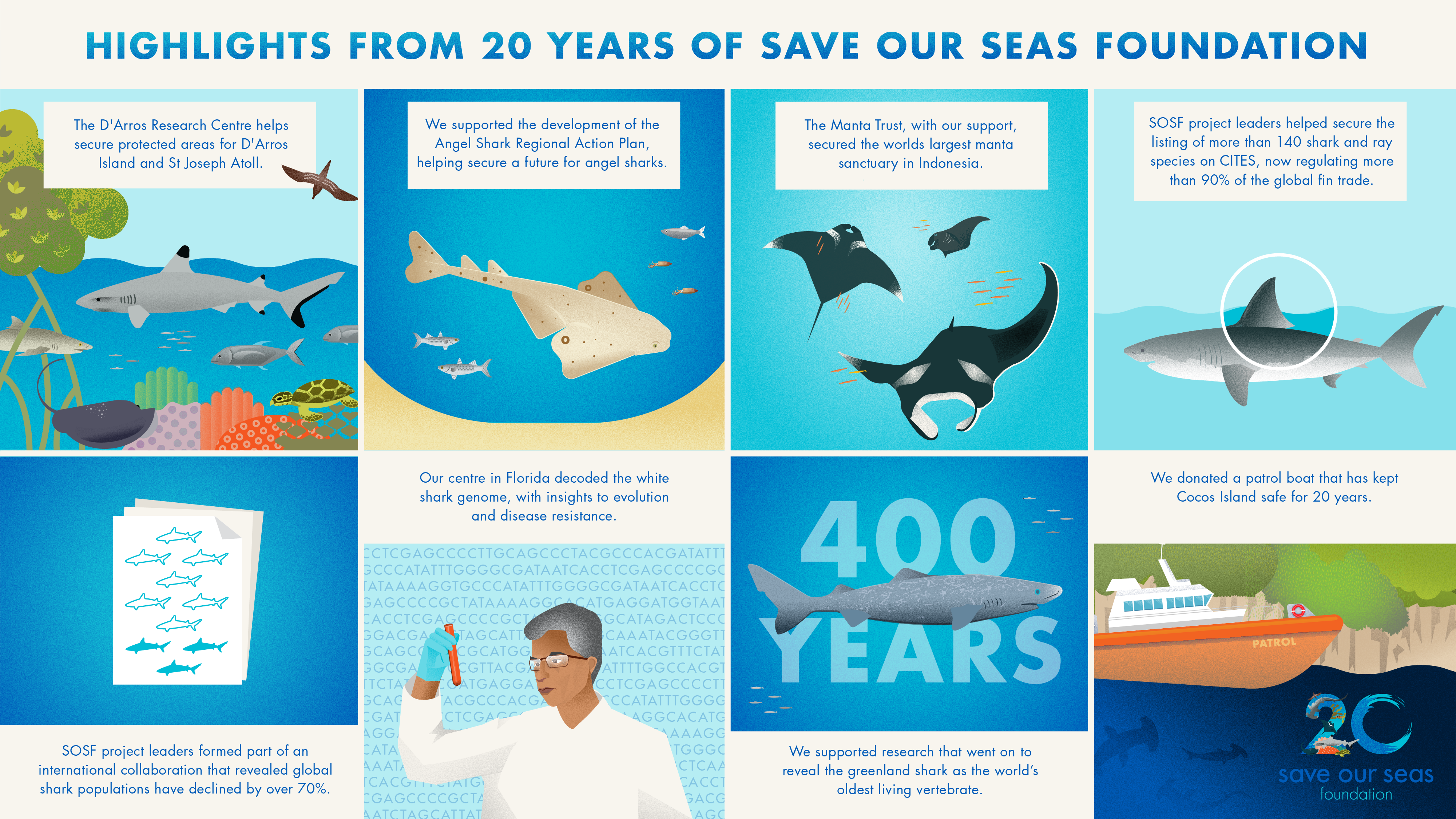
Artwork by Jamy Silver | © Save Our Seas Foundation
We live in a challenging world at a time in history when our collective action for the earth crackles on the precipice of something electrifying. And it’s in this year that the SOSF will commemorate its official birth date on 23 September. It’s a year to reflect on what has happened, both within the Foundation and across the shark conservation sector more generally, in the span of two decades. Our concern for the oceans, for sharks and their habitats – indeed, for our very future – has never been higher. We’re racing ever faster towards the deadlines we set to protect our planet, yet the Sustainable Development Goals, the CBD targets and a host of climate agreements still seem to hang suspended in the political ether, despite groundswell concern from active citizens around the globe. How then do we harness what could really become deep eco-anxiety and translate it into effective action? The SOSF hopes that its 20th anniversary in-person events and online offerings will transport you all into the field with our project leaders, to be inspired by the growing diversity of researchers, conservationists and educators (yes, 2023 sees a record 75 grants awarded to project leaders and programmes across an astonishing array of countries!) who are pushing ever harder for our bright blue future. The SOSF is hosting in-person events throughout 2023 at its research and education centres in South Africa, Seychelles and the USA, as well as at its birthplace in Geneva, Switzerland.
Project leaders will join the public in celebrating their love for the ocean – and it’s an exciting cohort of young innovators that is joining an array of shark conservationists who have been in action since long before 2003. There are also incentives for young researchers to look with hope to the next 20 years of shark conservation, including the launch of the SOSF Conservation Fellowship, which will provide financial support to early-career individuals working on shark and ray projects in resource-limited countries.
20th anniversary event in Cape Town
Over 20 years, the SOSF has developed a strong storytelling legacy, fostered on the belief that when the wonders of sharks and the sea are shared, more people can find their place in protecting our ocean home. An exciting collaboration with the Sea Change Project and Oscar-winning director Pippa Ehrlich (My Octopus Teacher) sees the premiere of a stirring new film, Older Than Trees. The film is about hope for sharks and rays, charting the personal journey and research of shark scientist James Lea. Its story transports viewers around the world and through 20 years of vital science funded by the SOSF to protect sharks and rays.
The Ocean Storytelling Grants make for a thrilling addition to 2023, with four inspirational photographers documenting stories across the oceans, and three writers (the winners of our recently announced Ocean Storytelling Writing Grant) setting out on their storytelling journeys this year. We have more people researching, documenting and sharing news of sharks and our seas than ever before. And it’s in this that we find enormous hope and the energy to propel ourselves into the next 20 years of shark conservation funding.
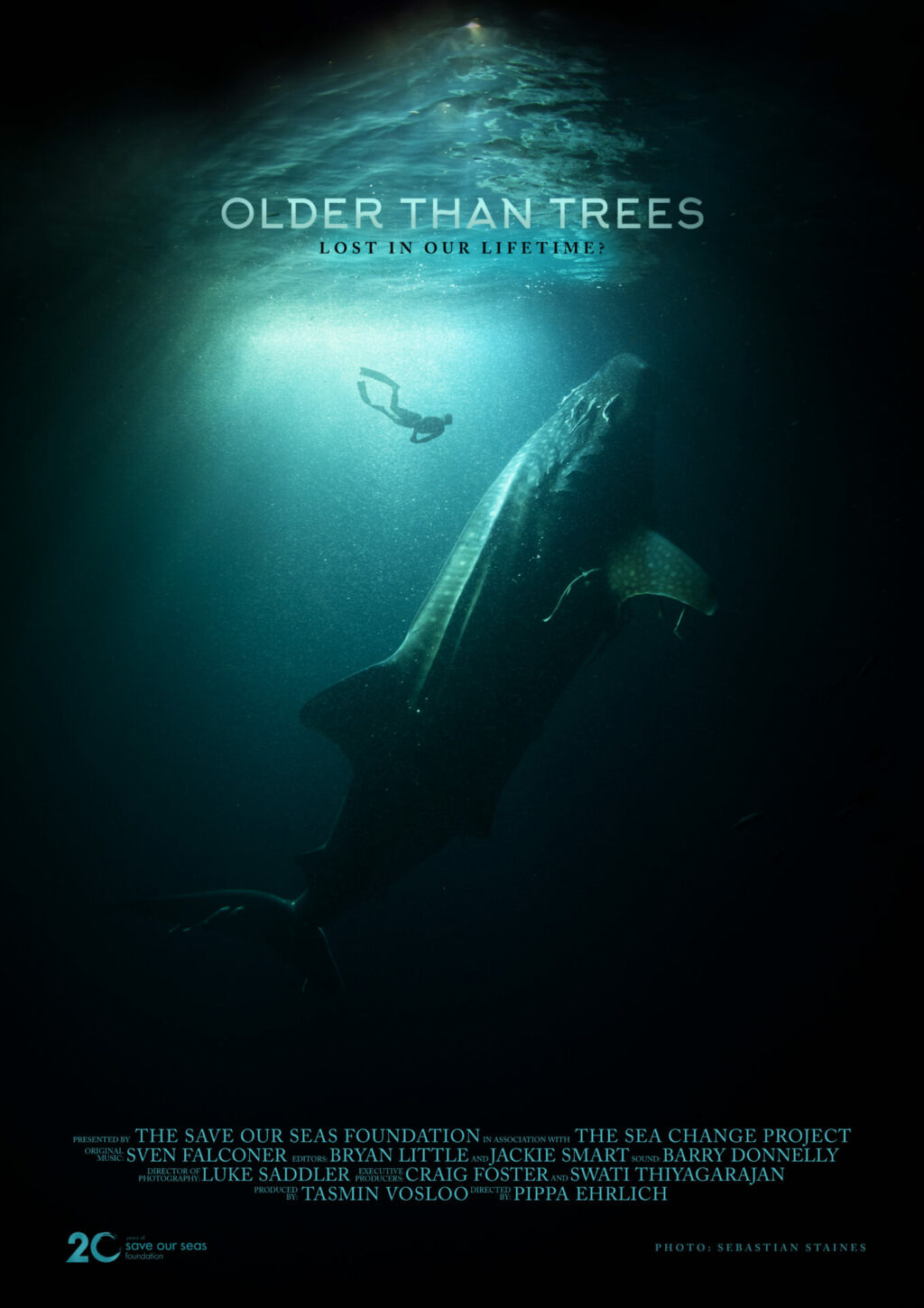
In The Book of Hope: A Survival Guide for Trying Times, Dr Jane Goodall says, ‘Hope is often misunderstood. People tend to think that it is simply passive wishful thinking: I hope something will happen but I’m not going to do anything about it. This is indeed the opposite of real hope, which requires action and engagement.’ That there are people like Victor Alati, gathering local knowledge and historical anecdotes of fishing communities on the Kenyan coast, and Cyrus Rumisha, building capacity for local Kenyan and Tanzanian communities to identify and protect endangered mobulids (the manta and devil rays), is the epitome of hope. In the face of dire climate warnings, researchers like Noèmie Coulon and Alice Rogers are springing to action. Noèmie is testing the impact of a warming and acidifying ocean, focusing on the developing embryos of small-spotted catsharks in the north-eastern Atlantic from where she is based in Brittany, France; and Alice is exploring how even in some of the most remote reaches of our planet, like Fiordland in the south-eastern corner of Aotearoa (New Zealand), the impact of climate change will still be felt.
With project leaders working from the Azores to the Amazon, from Mauritania to Papua New Guinea, and with the SOSF community growing across a variety of creative channels to find solutions to our biggest questions and share our oceans with us all, a 20th anniversary year is a real chance to harness hope and inspire you all to join us in finding your place in fighting for a sustainable, equitable and happy ocean future.
Celebration event dates:
Cape Town, South Africa: 3 May 2023
Fort Lauderdale, Florida, USA: 7 September 2023
Geneva, Switzerland: 23 September 2023
Victoria, Seychelles: 13 October 2023


